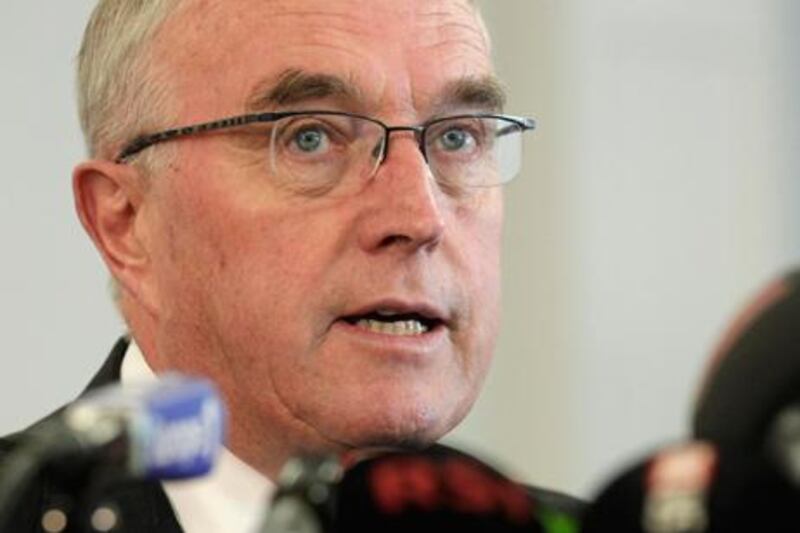Lance Armstrong was stripped of his seven Tour de France titles and told he “has no place in cycling” by the head of the sport’s world governing body.
On Monday the International Cycling Union (UCI) accepted the findings of a United States Anti-doping Agency (USADA) investigation, which concluded Armstrong and his United States Postal Service team ran “the most sophisticated, professionalised and successful doping programme that sport has ever seen”.
On August 23 USADA stripped the 41-year-old American of all results from August 1, 1998, including his record run of Tour triumphs from 1999 to 2005.
The agency also issued him with a life ban.
Those sanctions were what the UCI ratified at Geneva.
The decision has left cycling facing its “greatest crisis” according to the UCI president Pat McQuaid and has destroyed Armstrong’s last hope of clearing his name.
“Lance Armstrong has no place in cycling. Lance Armstrong deserves to be forgotten in cycling,” McQuaid told a news conference as he outlined how cycling, battered by doping problems for decades, would have to start all over again.
“The UCI wishes to begin that journey on that path forward today by confirming that it will not appeal to the Court of Arbitration for Sport and that it will recognise the sanction that USADA has imposed.
“I was sickened by what I read in the USADA report.”
Armstrong had previously elected not to contest USADA charges, prompting the agency to propose his punishment pending confirmation from the UCI.
Former Armstrong teammates testified against him and were given reduced bans by the American authorities.
“It wasn’t until the intervention of federal agents … they called these riders in and they put down a gun and badge on the table in front of them and said ‘you’re now facing a grand jury you must tell the truth’ that those riders broke down,” McQuaid said.
Armstrong has always denied doping and says he has never failed a doping test.---- He said he had stopped contesting the charges after years of probes and rumours because “there comes a point in every man’s life when he has to say enough is enough”.
McQuaid, who faced criticism from several quarters for his and the UCI’s handling of the affair, said he would not be resigning.
“Cycling has a future. This is not the first time cycling has reached a crossroads or that it has had to begin anew,” he said in front of a packed room full of journalists.
“When I took over [as president] in 2005 I made the fight against doping my priority.
“I acknowledged cycling had a culture of doping. Cycling has come a long way. I have no intention of resigning as president of the UCI.
“I am sorry we couldn’t catch every … one of them red handed and throw them out of the sport.”---- Other issues such as the potential re-awarding of Armstrong’s Tour titles and the matter of prize money will be discussed by the UCI Management Committee on Friday.
Tour director Christian Prudhomme has said he believes no rider should inherit the titles given doping was so widespread among the peloton at the time but McQuaid made it clear that decision rested with his organisation, not the Tour organisers.
Armstrong’s last hope that the UCI might not ratify USADA’s ruling sprang from long-running dispute between the two bodies over who should handle of the case.
The UCI said it had dope tested Armstrong 218 times and the fact he never tested positive and “beat the system” means organisations such as the World Anti-Doping Agency should share the responsibility of accepting the results.
The USADA chief executive Travis Tygart later issued a statement approving of the UCI’s action but warning more needed to be done.
“Despite its prior opposition to USADA’s investigation into doping on the US Postal Service cycling team and within the sport, USADA is glad that the UCI finally reversed course in this case and has made the credible decision available to it,” he said.
“This determination to uphold USADA’s decision on the US Postal Services case does not by itself clean up cycling nor does it ensure the sport has moved past the obstacles that allowed doping to flourish in the age of EPO and blood transfusions.
“For cycling to truly move forward and for the world to know what went on in cycling, it is essential that an independent and meaningful Truth and Reconciliation Commission be established so that the sport can fully unshackle itself from the past.”
There was no immediate response from Armstrong or his legal team.
Follow us
[ @SprtNationalUAE ]





